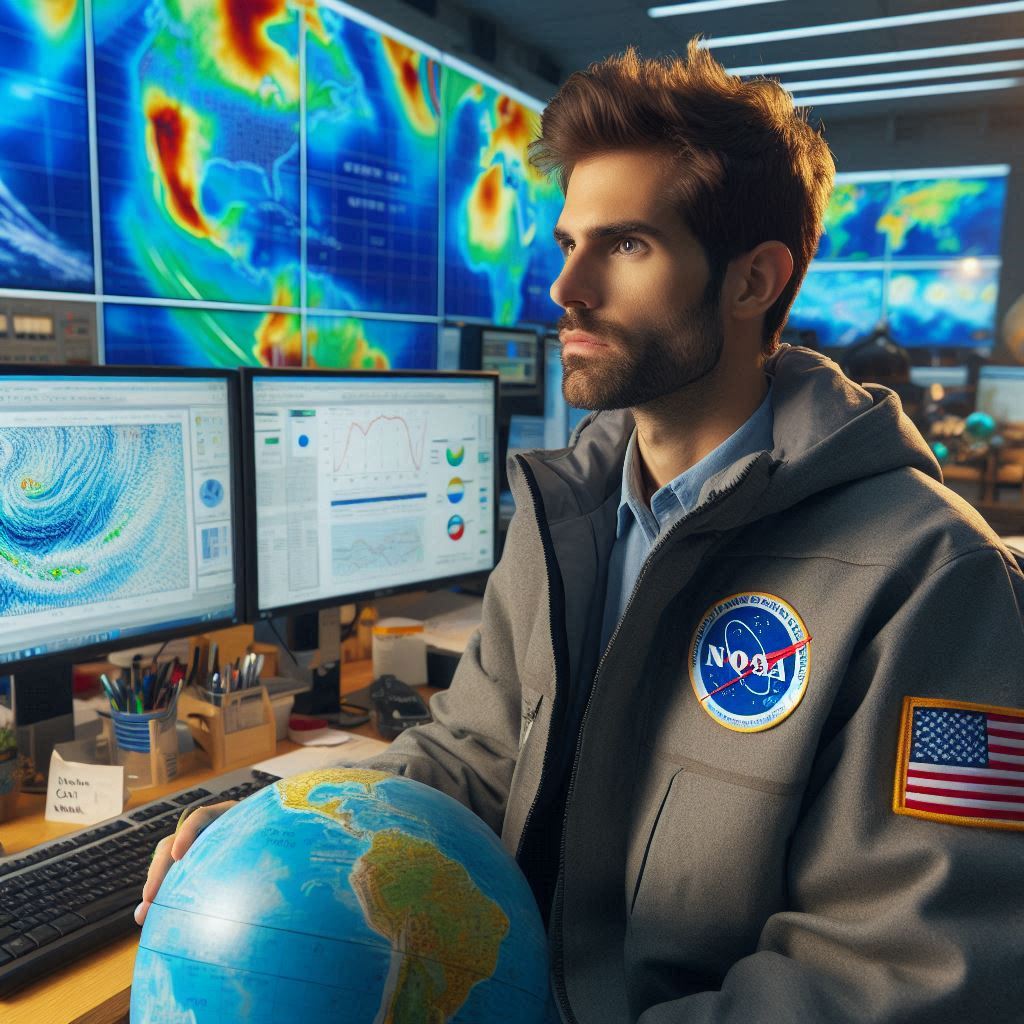Introduction
Climate change represents one of the most pressing challenges of our time, driven primarily by human activities such as fossil fuel consumption and deforestation.
Its impacts are widespread and severe, affecting weather patterns, sea levels, and biodiversity.
Communities around the globe face increased risks from extreme weather events, rising temperatures, and shifting ecosystems.
Given these alarming trends, taking action to mitigate climate change is crucial.
Timely interventions can help reduce greenhouse gas emissions, protect natural resources, and safeguard public health.
By implementing effective strategies, we can curb the progression of climate change and preserve the planet for future generations.
Experts in the field of climate change mitigation play a vital role in this effort.
Scientists, environmentalists, and policy makers work tirelessly to develop innovative solutions and promote sustainable practices.
Their research informs policies and initiatives that address climate challenges at local, national, and global levels.
By leveraging their expertise, we can create a comprehensive approach to combat climate change and foster a more sustainable future.
Overview of Climate Change Mitigation Strategies
What Climate Change Mitigation Strategies Are
Climate change mitigation strategies encompass actions aimed at reducing greenhouse gas emissions.
These strategies focus on lessening the impact of human activities on the climate.
Effective mitigation can slow global warming and prevent severe climate-related consequences.
Importance of Implementing These Strategies to Reduce Greenhouse Gas Emissions
Implementing these strategies is crucial for various reasons.
First, they help safeguard ecosystems and biodiversity.
Protecting natural habitats ensures the survival of countless species.
Second, these strategies enhance public health by improving air quality.
Reducing emissions leads to cleaner air, which benefits everyone.
Examples of Successful Mitigation Efforts in Various Countries
Countries worldwide are actively implementing climate change mitigation strategies.
Sweden, for example, generates 54% of its energy from renewable sources, significantly reducing greenhouse gas emissions.
Germany‘s Energiewende policy is phasing out nuclear power while aiming for 80% renewable electricity by 2050.
This transition has created jobs and boosted the economy.
Costa Rica prioritizes reforestation and conservation, with over 99% of its electricity from renewable sources, lowering its carbon footprint.
China, the largest greenhouse gas emitter, leads in solar and wind energy production and aims for carbon neutrality by 2060.
San Francisco‘s policies target 100% waste diversion from landfills by 2030.
Local and global efforts like these contribute to emission reductions.
Energy efficiency is another key mitigation strategy.
Upgrading buildings and transportation systems cuts energy use and emissions.
Many countries are adopting efficiency standards to promote sustainability.
These strategies are crucial in addressing global warming, helping reduce emissions and protect the planet.
Successful examples from various countries inspire others to take similar actions.
By prioritizing climate change mitigation, nations worldwide can create a sustainable future for generations to come.
Read: Profiles in Success: Leading Chemists of the 21st Century in the US
Contribution of Experts in Climate Change Mitigation
The Role Experts Play in Developing and Implementing Mitigation Strategies
Experts play a vital role in developing and implementing climate change mitigation strategies.
They provide scientific research and analysis to inform policy decisions.
By utilizing data, experts identify effective approaches to reduce greenhouse gas emissions.
They also collaborate with governments, businesses, and non-profit organizations to create actionable plans.
Furthermore, experts engage in public outreach and education.
They raise awareness about climate change and promote sustainable practices.
By communicating complex information, they empower individuals and communities to take action.
Their guidance helps shape public policy and investment priorities, ensuring effective climate responses.
Overview of Key Experts in the Field and Their Contributions
Many key experts have made significant contributions to climate change mitigation.
One notable figure is Dr. Jane Goodall, renowned for her conservation work.
She emphasizes the importance of protecting ecosystems and biodiversity.
Her research highlights the interconnections between human activities and environmental health.
Dr. Michael Mann, a prominent climate scientist, focuses on climate modeling and impacts.
His work has raised awareness of climate change’s urgency.
He advocates for science-based policies to curb emissions and foster sustainable development.
Dr. Katharine Hayhoe, a climate scientist and communicator, emphasizes the role of faith communities in climate action.
She bridges the gap between scientific knowledge and public understanding.
By connecting climate issues to local concerns, she encourages communities to engage in mitigation efforts.
Additionally, organizations like the Intergovernmental Panel on Climate Change (IPCC) compile research from experts worldwide.
Their assessment reports guide global climate policy.
The IPCC’s findings shape international agreements, such as the Paris Agreement, which aims to limit global warming.
Importance of Expertise and Knowledge in Tackling Climate Change
Expertise and knowledge are essential in tackling climate change.
Scientific research provides the foundation for effective strategies.
Experts analyze data, identify trends, and project future climate scenarios.
Their insights help policymakers understand potential impacts and make informed decisions.
Moreover, experts contribute to innovation in technology and practices.
They develop renewable energy technologies and promote sustainable agriculture.
By sharing their knowledge, they inspire new solutions to mitigate climate change.
Collaboration among experts also fosters comprehensive approaches.
Different fields‘such as economics, engineering, and social sciences‘bring diverse perspectives.
This multidisciplinary approach ensures holistic solutions that address various aspects of climate change.
Experts play a crucial role in climate change mitigation.
Their contributions shape effective strategies, raise awareness, and inspire action.
By leveraging their knowledge, we can better understand and address the challenges posed by climate change.
Engaging experts is essential for developing and implementing solutions that secure a sustainable future for our planet.
Read: The Life and Times of a U.S. Physicist: A Day in Detail
Innovative Technologies and Solutions
Innovative Technologies Being Developed by Experts to Mitigate Climate Change
First, Innovative technologies are crucial in the fight against climate change.
Experts worldwide are developing advanced solutions to reduce greenhouse gas emissions.
These technologies aim to enhance energy efficiency, promote renewable energy, and capture carbon emissions.
By integrating innovation, we can create a sustainable future for generations to come.
Examples of Renewable Energy Sources, Carbon Capture Technologies, and Other Solutions
One of the most promising innovations is renewable energy.
Solar and wind energy have become increasingly efficient and affordable.
Solar panels convert sunlight into electricity, while wind turbines harness wind power.
Both sources significantly reduce reliance on fossil fuels, minimizing emissions.
Hydropower also plays a significant role in renewable energy.
It generates electricity by utilizing flowing water, often from dams.
Geothermal energy, derived from the Earth’s heat, offers another sustainable option.
Together, these sources contribute to a cleaner energy mix.
Carbon capture and storage (CCS) technologies are vital for mitigating climate change.
These systems capture carbon dioxide emissions from industrial processes and store them underground.
For instance, the Petra Nova project in Texas captures CO2 from a coal plant.
This captured carbon is then injected into oil fields for enhanced oil recovery.
Innovative agricultural practices are also emerging as solutions.
Precision agriculture uses technology to optimize farming practices.
Farmers can use sensors and data analytics to reduce water and fertilizer use.
These practices minimize emissions and enhance food production efficiency.
Electric vehicles (EVs) are another technological advancement making waves.
As they replace traditional combustion engines, EVs reduce air pollution and greenhouse gas emissions.
Advances in battery technology are improving EV performance and charging infrastructure.
Benefits of Investing in These Technologies for Long-Term Climate Change Mitigation
Investing in these innovative technologies offers numerous benefits.
First, they can drive economic growth by creating jobs in emerging sectors.
The renewable energy industry, for example, is a rapidly growing job market.
Skilled workers are needed for installation, maintenance, and development.
Second, these technologies promote energy independence.
By relying on local renewable resources, countries can reduce their dependence on imported fossil fuels.
This shift can enhance energy security and stabilize economies.
Moreover, investing in clean technologies improves public health.
Renewable energy reduces air pollution, leading to fewer respiratory issues and related health problems.
Healthier populations contribute to lower healthcare costs and increased productivity.
Finally, embracing innovation positions nations as leaders in the global climate effort.
Countries investing in clean technologies can set standards and influence international policies.
By showcasing successful solutions, they can inspire others to follow suit.
Innovative technologies are essential for climate change mitigation.
Renewable energy sources, carbon capture technologies, and sustainable practices offer effective solutions.
Investing in these technologies not only addresses climate challenges but also drives economic growth and improves public health.
By prioritizing innovation, we can build a sustainable future for our planet.
Read: Salary Ranges: What to Expect as a Physicist in the USA

Policy Recommendations by Experts
Overview of Policy Recommendations Made by Experts to Tackle Climate Change
Experts advocate for various policy recommendations to address climate change effectively.
These recommendations aim to create a supportive framework for implementing mitigation strategies.
They focus on promoting renewable energy, enhancing energy efficiency, and encouraging sustainable practices.
Policymakers must consider these recommendations to combat climate change effectively.
One common recommendation is to set ambitious greenhouse gas reduction targets.
Experts suggest aligning these targets with scientific assessments to ensure effectiveness.
Countries should commit to measurable goals that gradually reduce emissions over time.
This approach can drive long-term change and accountability.
Another recommendation involves implementing carbon pricing mechanisms.
Carbon taxes or cap-and-trade systems create financial incentives to reduce emissions.
By putting a price on carbon, businesses and individuals are encouraged to adopt cleaner alternatives.
This market-driven approach fosters innovation and investment in sustainable technologies.
Importance of Governmental Support and Regulations in Implementing Mitigation Strategies
Governmental support and regulations are crucial for the success of climate change mitigation efforts.
Strong policies provide the framework needed for businesses and communities to take action.
Governments can incentivize renewable energy projects through grants, subsidies, and tax breaks.
These financial incentives make clean energy sources more accessible and attractive.
Regulations also play a significant role in promoting compliance with emissions reduction targets.
Governments must enforce strict standards for industries and transportation sectors.
By setting clear guidelines, they can ensure that companies adhere to environmental responsibilities.
Furthermore, public investment in research and development is essential.
Governments should allocate funds to support innovative technologies and sustainable practices.
This investment will enhance the capacity to tackle climate change and create jobs in emerging industries.
Examples of Successful Policies Implemented by Countries to Reduce Emissions
Several countries have successfully implemented policies to reduce emissions.
For instance, Denmark has established ambitious renewable energy targets.
The country aims to produce 50% of its electricity from wind energy by 2030.
This commitment has led to significant investments in wind farm development.
Sweden has introduced a carbon tax that effectively encourages emission reductions.
Since its implementation in 1991, the tax has contributed to a decrease in greenhouse gas emissions.
The revenue generated is reinvested in renewable energy projects, further supporting sustainability.
New Zealand has implemented an Emissions Trading Scheme (ETS) to cap and reduce emissions.
This market-based approach incentivizes companies to lower their carbon footprints.
The ETS has successfully reduced emissions while promoting economic growth.
In California, the cap-and-trade program has garnered attention for its effectiveness.
It sets a limit on emissions while allowing companies to buy and sell allowances.
This flexibility encourages companies to innovate and invest in cleaner technologies.
Policy recommendations from experts play a vital role in tackling climate change.
Governmental support and regulations provide the necessary framework for successful mitigation strategies.
Successful policies from various countries demonstrate that effective climate action is achievable.
By prioritizing these recommendations, governments can create a sustainable future and inspire global efforts against climate change.
Read: Physics Specializations: Choosing Your Path in the U.S.
Find Out More: Women Pioneers in Neuroscience: Inspiring Stories
See Related Content: Ethical Considerations in Optometry Practice
Community Engagement and Education
The Role of Experts in Educating the Public About Climate Change and Mitigation Strategies
Experts play a crucial role in educating the public about climate change and effective mitigation strategies.
Through outreach programs, workshops, and seminars, they raise awareness of climate issues.
These initiatives aim to inform communities about the science behind climate change and the necessity of taking action.
Experts simplify complex information, making it accessible to a broader audience.
This education empowers individuals and communities to make informed decisions regarding their environmental impact.
Additionally, experts collaborate with educators to integrate climate education into school curriculums.
By fostering a deeper understanding of climate change among students, they inspire future generations to engage in sustainability efforts.
Experts often provide resources and training to teachers, ensuring that accurate and relevant information reaches students.
Transform Your Career Today
Unlock a personalized career strategy that drives real results. Get tailored advice and a roadmap designed just for you.
Start NowImportance of Community Engagement in Implementing Climate Change Solutions
Community engagement is essential for the successful implementation of climate change solutions.
When communities actively participate in decision-making processes, they become more invested in the outcomes.
Engaged communities can identify local issues, enabling tailored solutions that address their unique circumstances.
This localized approach often leads to more effective strategies and sustainable practices.
Moreover, community engagement fosters collaboration among various stakeholders.
Local governments, businesses, and residents can work together to create comprehensive action plans.
This collaboration enhances the overall effectiveness of climate initiatives, ensuring that diverse perspectives are considered.
Engaged communities are also more likely to adopt sustainable practices.
When individuals understand the importance of reducing their carbon footprints, they take meaningful actions.
This collective effort can lead to significant reductions in emissions and a stronger commitment to sustainability.
Examples of Successful Community-Driven Initiatives Led by Experts
Several successful community-driven initiatives demonstrate the impact of expert involvement in climate action.
One notable example is the “Transition Towns” movement, which originated in the UK.
This grassroots initiative encourages communities to develop local solutions for sustainability.
Experts provide guidance and resources, enabling towns to reduce their dependence on fossil fuels.
Another example is the “Community Solar” programs, which allow residents to invest in solar energy collectively.
Experts help design and implement these programs, making renewable energy accessible to those who cannot install solar panels on their properties.
These initiatives empower communities to harness clean energy and reduce their carbon footprints.
In the United States, the “Green Community Program” supports local sustainability efforts.
Experts collaborate with community members to identify environmental challenges and develop solutions.
This program has successfully led to tree-planting initiatives, urban gardens, and energy efficiency upgrades in various neighborhoods.
Additionally, educational campaigns like “Earth Hour” engage communities worldwide in climate action.
This initiative encourages individuals and organizations to turn off non-essential lights for one hour.
Experts support the campaign by providing educational resources, highlighting the importance of energy conservation.
Community engagement and education are vital for addressing climate change.
Experts play a key role in raising awareness and fostering collaboration among stakeholders.
Successful community-driven initiatives showcase the power of collective action in implementing effective climate solutions.
By prioritizing education and engagement, we can empower communities to take meaningful steps toward a sustainable future.
Global Collaboration and Partnerships
Importance of International Cooperation in Tackling Climate Change
International cooperation is crucial for effectively addressing climate change.
Climate change knows no borders; its impacts affect every country, regardless of size or development status.
Collective action is necessary to implement comprehensive solutions and share resources.
Countries must work together to set ambitious greenhouse gas reduction targets and develop sustainable practices.
Collaboration also enhances the sharing of knowledge and technologies.
Developing nations often lack the resources to implement effective climate solutions.
By partnering with more advanced economies, they can access technology, funding, and expertise.
This cooperation helps to ensure that all countries can contribute to global climate goals.
Moreover, international cooperation fosters a sense of shared responsibility.
When nations unite to tackle climate change, it reinforces the idea that everyone has a role to play.
This collective mindset can inspire more ambitious commitments from countries and encourage citizens to take action.
Role of Experts in Fostering Partnerships Between Countries and Organizations
Experts play a vital role in fostering partnerships between countries and organizations.
They provide the necessary knowledge and expertise to guide negotiations and collaborations.
Experts can identify common goals and areas of mutual interest, facilitating productive discussions.
Moreover, experts help to establish frameworks for international agreements.
They analyze data, assess potential impacts, and offer evidence-based recommendations.
Their input ensures that agreements are grounded in scientific understanding, leading to more effective climate action.
Experts also contribute to capacity-building efforts in developing countries.
They help local leaders design and implement climate action plans.
This support strengthens the ability of nations to participate in global initiatives and engage in meaningful collaborations.
Examples of Successful Collaborations in Addressing Climate Change on a Global Scale
Several successful global collaborations demonstrate the power of international partnerships in addressing climate change.
The Paris Agreement, established in 2015, is a landmark example.
Nearly 200 countries committed to limit global warming to well below 2 degrees Celsius.
This agreement exemplifies the collective effort needed to combat climate change and promote sustainable development.
Another example is the United Nations Framework Convention on Climate Change (UNFCCC).
This ongoing initiative provides a platform for countries to negotiate climate action and share best practices.
The annual Conference of the Parties (COP) brings together world leaders to discuss progress and set new targets.
The Carbon Trust is a collaboration between businesses, governments, and experts aimed at accelerating the transition to a low-carbon economy.
By providing support and guidance, the Carbon Trust helps organizations adopt sustainable practices and reduce emissions.
This initiative highlights the importance of partnerships in driving collective action.
The Global Environment Facility (GEF) is another successful collaborative effort.
This financial organization supports developing countries in their efforts to address climate change and other environmental challenges.
By providing funding and technical assistance, the GEF empowers nations to implement effective climate strategies.
Global collaboration and partnerships are essential for addressing climate change.
International cooperation enables countries to share resources, knowledge, and technology.
Experts play a key role in fostering these partnerships, ensuring that agreements are grounded in scientific understanding.
Successful collaborations, like the Paris Agreement and the UNFCCC, demonstrate the power of collective action in tackling this global challenge.
By prioritizing collaboration, we can work together to create a sustainable future for all.
Learn More: Astronomer Salary Expectations in the USA
Conclusion
Climate change poses a significant threat to our planet and requires urgent action.
Mitigation strategies are essential for reducing greenhouse gas emissions and preserving ecosystems.
These strategies help combat climate change and protect vulnerable communities from its impacts.
Experts play a crucial role in developing and implementing these strategies.
Their research and knowledge inform effective policies and practical solutions for businesses and communities.
The role of scientists, engineers, and policy makers is critical in addressing climate change challenges.
They analyze data, conduct research, and develop innovative technologies.
By collaborating, these experts create strategies tailored to local and global needs.
We must acknowledge their expertise and actively support their efforts.
Individuals can adopt sustainable practices in daily life, such as reducing energy consumption, conserving water, and using public transport.
Simple changes, like switching to renewable energy sources or minimizing waste, can significantly impact the environment.
Additionally, governments should invest in clean technologies and enforce regulations that promote sustainability.
Policies that support renewable energy, carbon pricing, and sustainable agriculture can drive substantial progress.
Collaboration among all stakeholders, including businesses, communities, and governments, is vital for success.
Together, we can tackle climate change and protect future generations.
Let‘s unite in this cause and advocate for effective climate action.
Your involvement can make a difference, so take action today! Support local initiatives, stay informed, and encourage others to join the movement.
The time to act is now, and every effort counts in the fight against climate change.
[E-Books for Sale]
The Big Book of 500 High-Paying Jobs in America: Unlock Your Earning Potential
$19.99 • 500 High-Paying Jobs • 330 pages
Explore 500 high-paying jobs in America and learn how to boost your career, earn more, and achieve success!
See All 500 High-Paying Jobs of this E-Book
1001 Professions Without a Degree: High-Paying American Jobs You Can Start Now
$19.99 • 1001 Professions Without a Degree • 174 pages
Discover 1001 high-paying jobs without a degree! Unlock career tips, skills, and success strategies for just $19.99!




